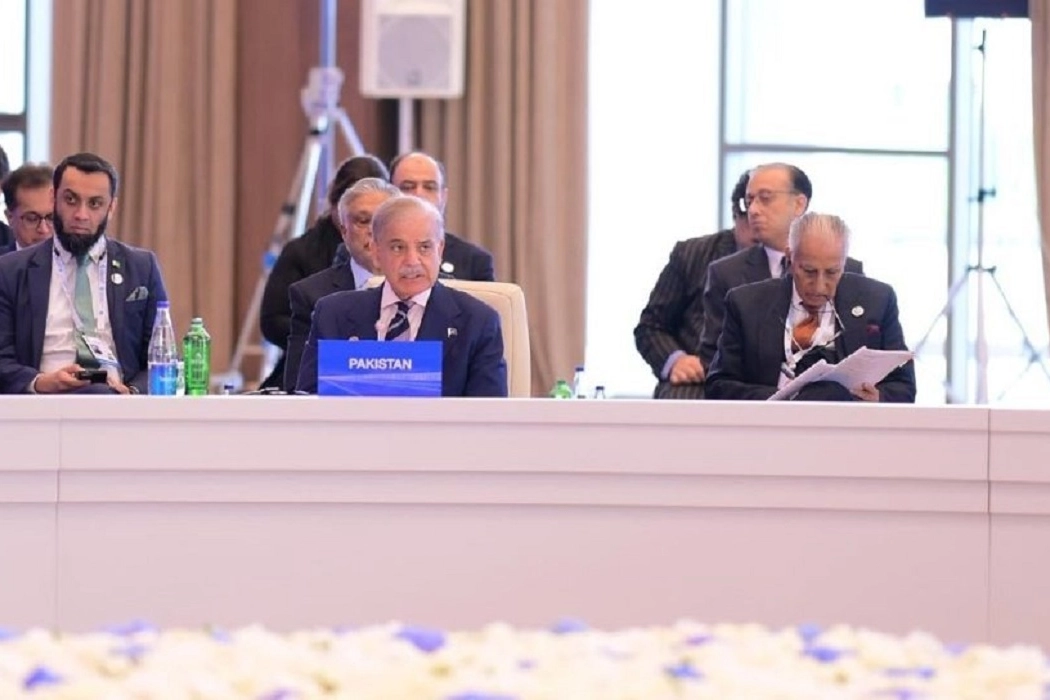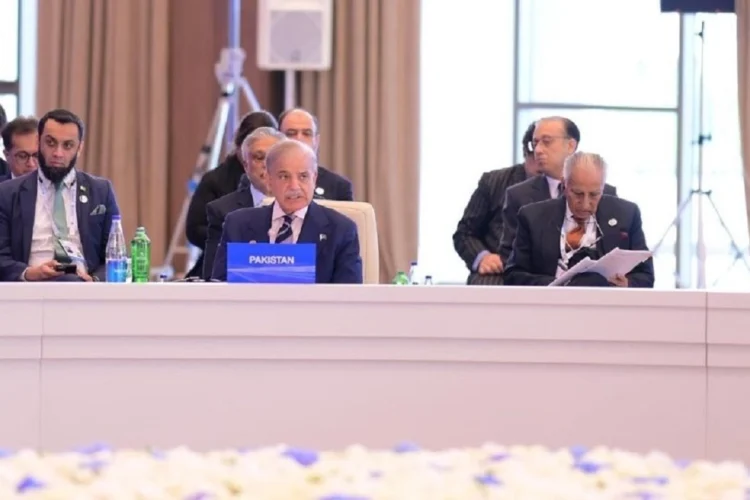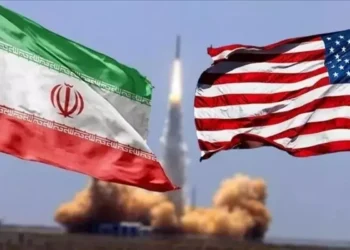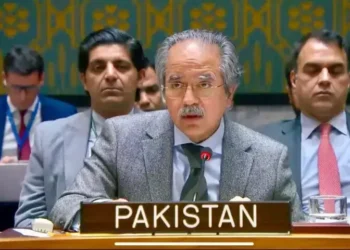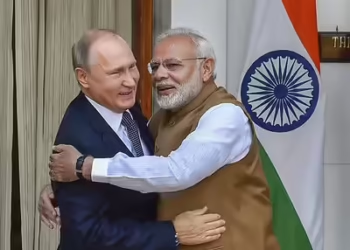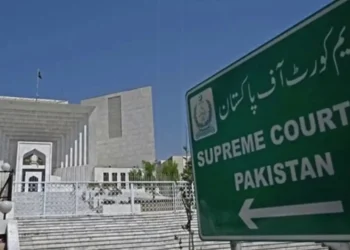Khankendi, Azerbaijan: Prime Minister Shehbaz Sharif on Friday urged stronger regional cooperation in the face of increasing geopolitical tensions, including the Iran-Israel conflict and Indian hostility towards Pakistan, stressing that the Economic Cooperation Organisation (ECO) offered the country its “best hope” for a unified response.
Addressing the 17th ECO Summit in Azerbaijan’s Khankendi city, the prime minister said two recent events — the Iran-Israel war and the India-Pakistan conflict — showed that “the forces of instability and chaos continue to destabilise our region for geo-political agendas.
“The evolving global landscape has made regional cooperation even more essential,” PM Shehbaz said while addressing the 10-nation Eurasian bloc. “ECO represents our best hope, and Pakistan is a proud partner in these collective efforts.”
Speaking about the 12-day Iran-Israel war, he said that “the unlawful, uncalled for and unjustified Israeli attack on Iran was the most recent manifestation of this dangerous trend.”
According to Iran’s health ministry, at least 627 people were killed and 4,870 wounded in Israeli strikes.
“Pakistan condemns this act of Israeli aggression against Iran and offers our condolences to the martyrs,” he said.
PM Shehbaz also condemned the recent Indian aggression against Pakistan and New Delhi’s attempts to weaponise water by holding the Indus Water Treaty in abeyance.
“The unprovoked and reckless Indian hostility directed at Pakistan after an unfortunate incident in India’s illegally occupied Kashmir was yet another attempt to destabilise regional peace.
“The world saw the steadfast determination of our armed forces under the leadership of Field Marshal Asim Munir and the unyielding spirit of our resilient people who stood firm in the face of provocation and responded with courage and professionalism.”
India had launched missile attacks on several Pakistani cities after baselessly accusing Islamabad of backing an attack on held Kashmir’s Pahalgam town, which saw the killing of 26 tourists on April 22.
In response, Pakistan downed five Indian jets and launched retaliatory strikes on India. It took US intervention on May 10 for both countries to reach a ceasefire.
“We are witnessing a new and alarming trend with India’s weaponisation of water, illegal attempt to defy the World Bank-negotiated Indus Water Treaty and its blatant disregard for the recent ruling of the Permanent Court of Arbitration (PCA) are unacceptable and should be rejected with contempt.”
Last week, the PCA in The Hague issued a “Supplemental Award of Competence” in the Indus Waters case, stating that India cannot unilaterally hold the treaty in abeyance. However, India “categorically rejected” the PCA’s supplemental award and stated that it did not recognise the court itself.
PM Shehbaz said the Indus waters were the lifeline of Pakistan’s 240 million people and India couldn’t be allowed to “pursue this dangerous path that will be regarded as an act of aggression by the people of Pakistan”.
The prime minister also voiced concerns over the situation in Gaza and the ongoing Israeli strikes there, which have killed more than 57,000 Palestinians since October 7, 2023.
“The world is witnessing an unprecedented man-made catastrophe in Gaza, a region that has descended into an abyss of perpetual suffering,” the premier said.
“It is as if humanity no longer exists as famine looms large, while humanitarian workers, including UN personnel, are being attacked with impunity by Israel to cut off the only lifeline of the helpless and starving people of Gaza.”
He said Pakistan stood firmly against those who “perpetrate barbaric acts against innocent people, whether in Gaza, occupied Kashmir or Iran”.
Regarding the effects of climate change, the prime minister said Pakistan had undertaken a series of climate-related policy initiatives focused on the government’s Resilience, Recovery, Rehabilitation and Reconstruction Framework (4RF).
He proposed the development of low-emission corridors, ECO-wide carbon market platforms and a regional disaster resistance system.
Earlier in the day, PM Shehbaz held a bilateral meeting with Azerbaijan President Ilham Aliyev on the sidelines of the ECO Summit.
Prime Minister Muhammad Shehbaz Sharif departed for Pakistan after completing his two-day official visit to Azerbaijan.
At Fuzuli International Airport, the Prime Minister and his delegation were seen off by Azerbaijan’s Minister of Education and Science Emin Amrullayev, Azerbaijan’s Ambassador to Pakistan Khazar Farhadov, Pakistan’s Ambassador to Azerbaijan Qasim Mohiuddin, and senior diplomatic and government officials.
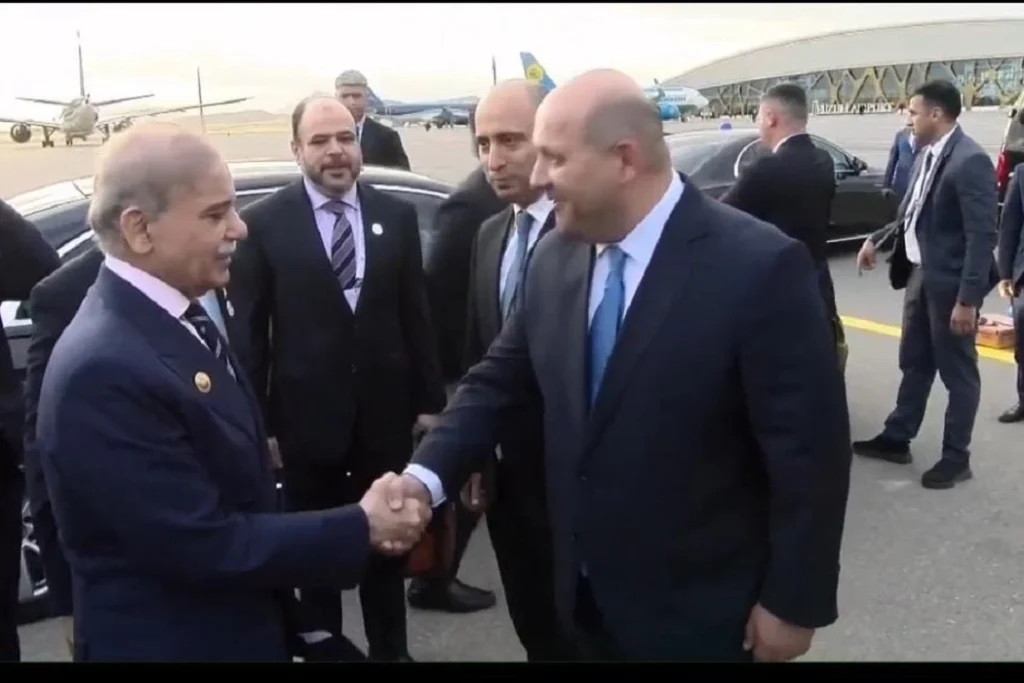
Shahbaz Sharif emphasized the importance of enhancing regional connectivity, trade, investment, sustainable development, and collective efforts for regional peace.
On the sidelines of the summit, the Prime Minister held meetings with Iranian President Dr. Masoud Pezeshkian, Azerbaijani President Ilham Aliyev, Turkish President Recep Tayyip Erdogan, and Uzbek President Shavkat Mirziyoyev.
The discussions focused on promoting regional peace and strengthening bilateral ties and trade relations between Pakistan and these countries.
